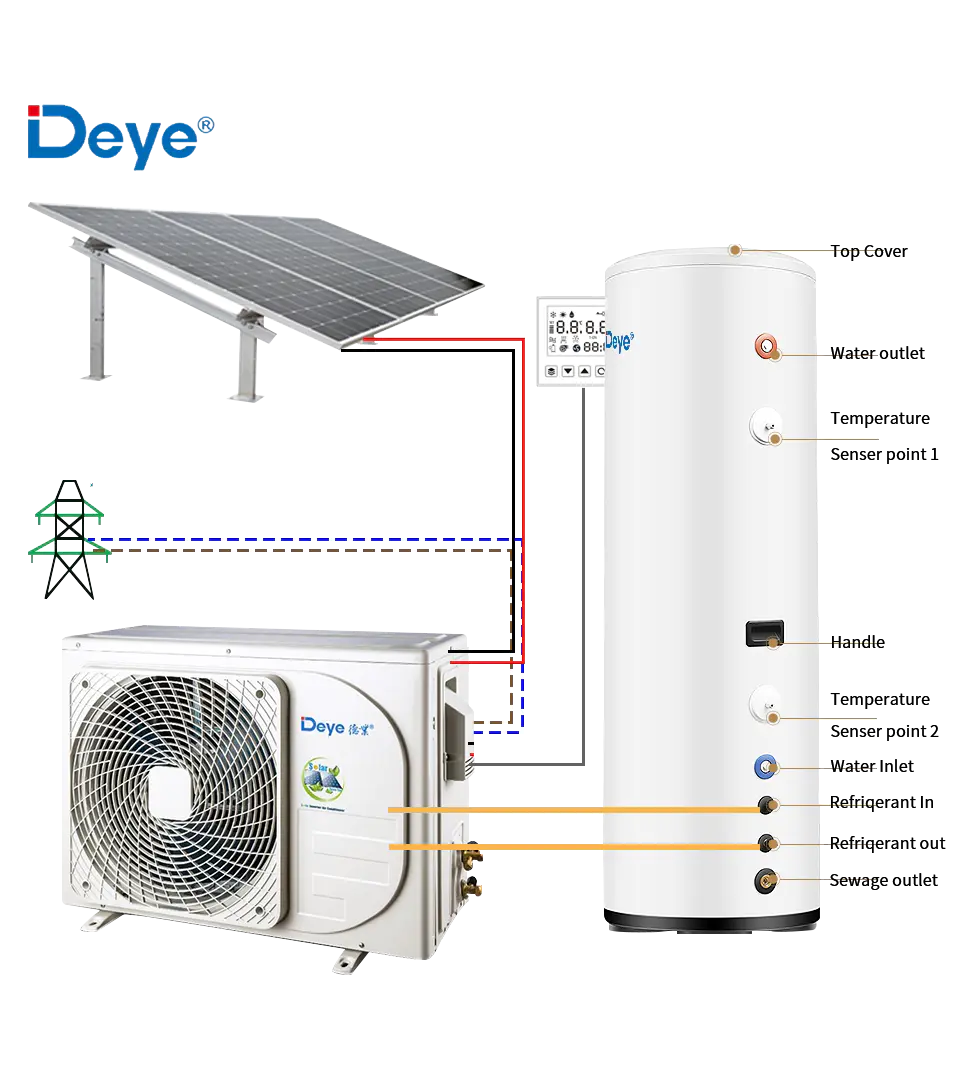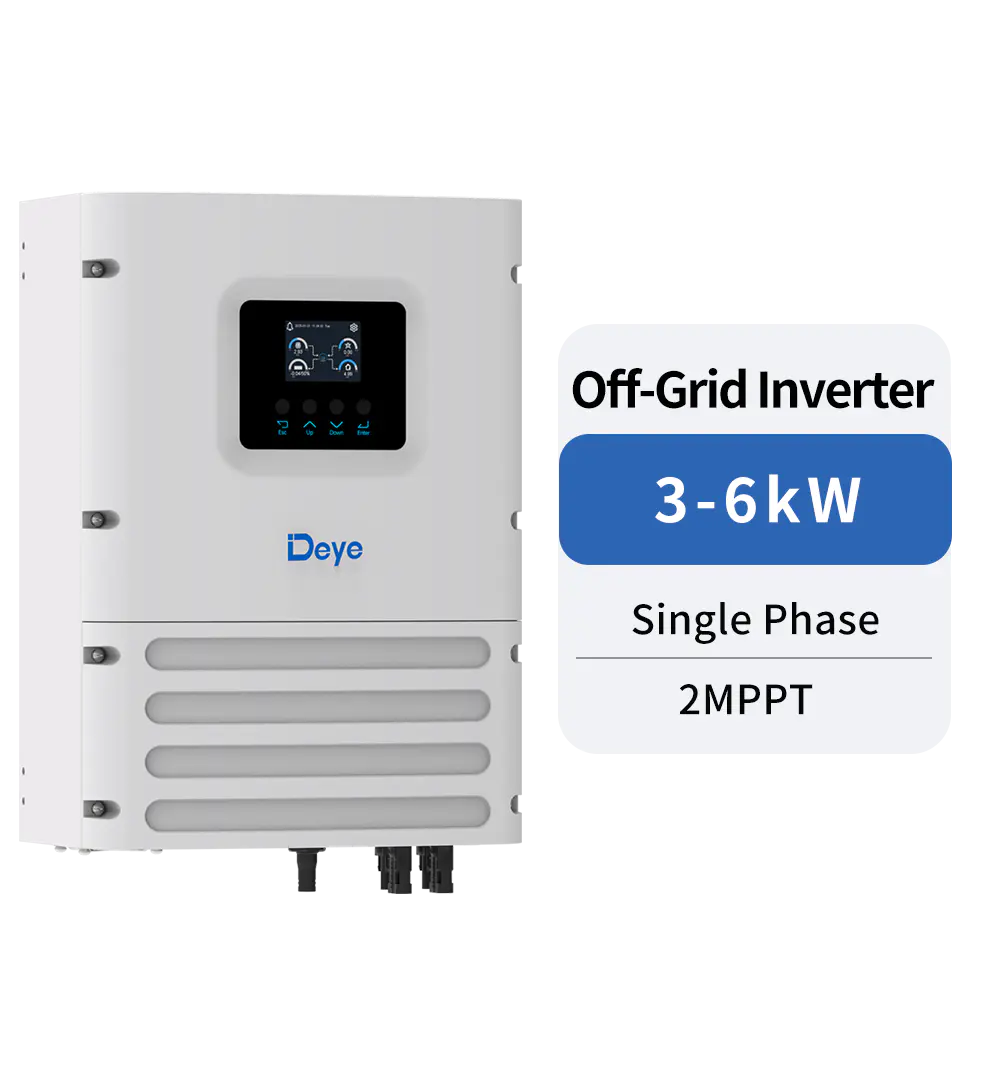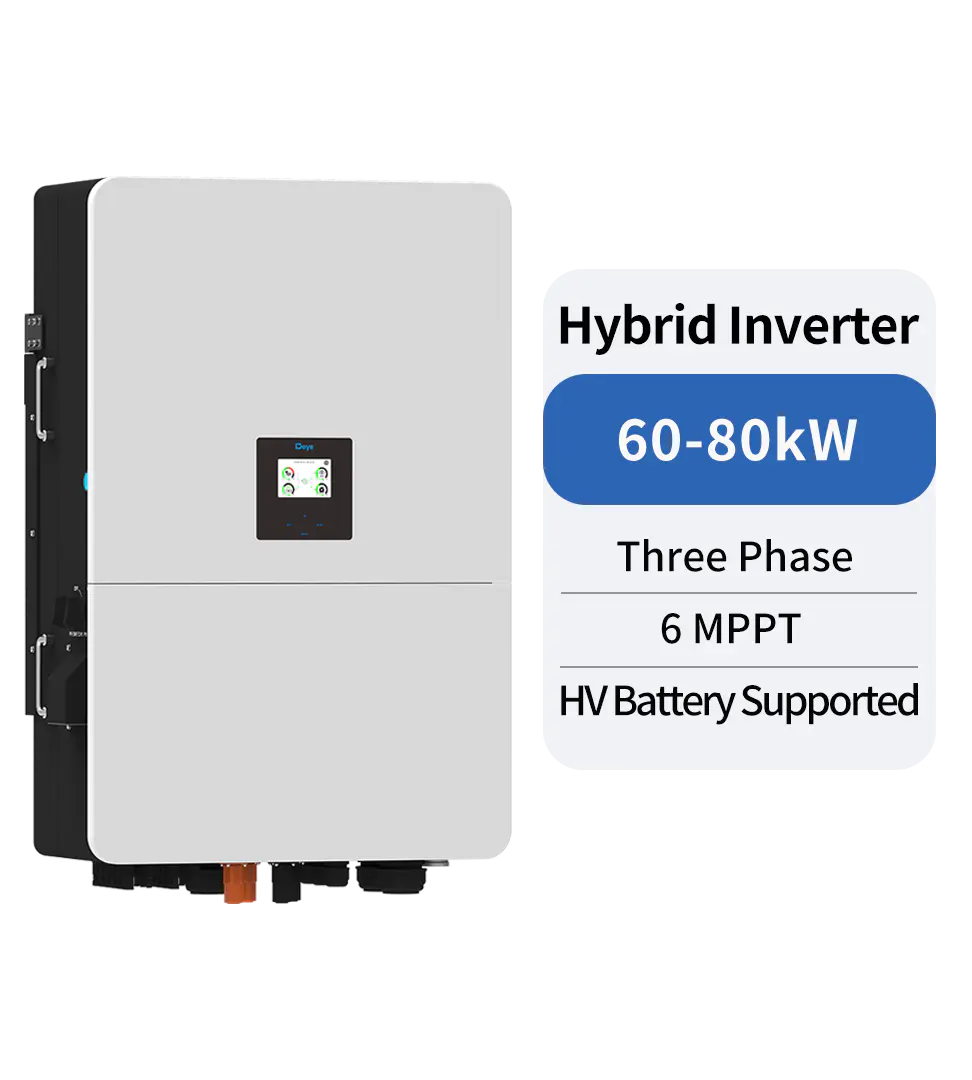Technical Topics
What is a solar air conditioner?
A solar air conditioner is a type of air conditioning system that uses solar energy to generate cool air. It is an alternative energy source that can be easily installed and has no operating costs. In addition to reducing indoor carbon emissions, solar air conditioners have many other benefits. They can be a great way to stay cool in the summer. And, they're also easy to pocket. To learn more about this alternative energy, read on.
There are several types of solar air conditioners. Some run entirely on solar energy, while others use a combination of the two. PEP Solar Advanced Solar Air Conditioner uses both solar energy and electricity to run the unit. It uses DC power from solar panels while drawing electricity from the grid for power supply. This model also has a large capacity and can run up to four cassettes or wall mounted units. It can help homeowners save up to 30% on cooling costs!

The Deye Solar Air Conditioner is a sleek, futuristic design. A low-profile, high-performance device with a sleek futuristic look. The unit has a white finish and is up to 900 watts of power. The DC motor and photocell are controlled by the Dometic II Comfort Control Center, but it requires a plug-in electrical connection to run the unit. The system is compatible with Dome Controllers and Air Distribution Units.
While many people prefer to buy a solar air conditioner for the sake of the environment, they are not always a good idea for all homes. In the United States, you should have a backup generator for your AC system. DC power is not only cheaper but also more reliable. And unlike a standard AC unit, your electricity bill will be lower than usual. And of course, you can always use the energy generated by the solar panels to run the air conditioner.
Solar air conditioners harness energy from the sun that can cool and heat year-round. In addition to the energy it produces, the solar air conditioner can also be used as a source of electricity when the sun is not shining. Solar air conditioners can be used when the outside temperature is high enough to warrant AC use on cloudy days. And, while you don't have to use the sun's energy to run your air conditioner, the benefits can be substantial.
The solar air conditioner can be installed on the roof to operate the air conditioner. It can also help keep your home cool. A solar panel on your roof will create shade and reduce heat by up to 38%. In addition, the ceiling under the solar array is 5 degrees cooler than the ceiling without the solar array. For more information about solar air conditioning systems, contact a local contractor. A complete set can be purchased at Deye Inverter.
Solar air conditioners have all the benefits of conventional air conditioning systems. The only difference between them is the energy source and the transition. Depending on the climate of your home, a solar air conditioner can reduce the energy needed by up to 50% to run an AC. The system can be set to limit AC power input, thereby reducing AC running costs. Solar air conditioners can also be set to turn off during the day, which is an added benefit.
Solar air conditioners can also reduce the power input to your home. The system can be set up to only run AC appliances during the day, which will save you money. Solar-powered air conditioners can also help you cut your electricity costs. You can install AC solar power at your home without any problems. However, the solar power system should be installed on the roof in a place where the sun is not too strong. However, if you don't have a roof, you can still save money.
A solar AC must have a high quality heat pump. A good heat pump must be able to generate power as it cools the air in the home. A SEER value of 1.6 or more is recommended for solar AC. And, the higher the SEER value, the better. If you are buying a solar air conditioner, it is important to consider the amount of electricity it uses. If you don't have a lot of money, you may end up spending more than usual.
PREV:Micro inverter system - Deye
NEXT:Advantages of Solar Inverters and Energy Storage Inverters
Share
Product recommendations
news recommendations
-

-
 Deye and Tank-Weld Metals Announce Strategic Partnership to Transform Solar Distribution across the Caribbean and Latin America
Deye and Tank-Weld Metals Announce Strategic Partnership to Transform Solar Distribution across the Caribbean and Latin AmericaKINGSTON, JAMAICA – Ningbo Deye Inverter Technology Co., Ltd, through its Deye brand, a global leade...
-
 Green Industry, Bright Future: Deye Distributor Summit – Dubai 2025 Concludes Successfully
Green Industry, Bright Future: Deye Distributor Summit – Dubai 2025 Concludes SuccessfullyIn November 2025, Deye Group successfully hosted the “Green Industry, Bright Future—Deye 2025 Dubai ...

 China - 简体中文
China - 简体中文 Global - English
Global - English Brazil - Português
Brazil - Português Netherlands - Dutch
Netherlands - Dutch Italy - Italiano
Italy - Italiano Germany - Deutsch
Germany - Deutsch Spain - Español
Spain - Español France - Français
France - Français Vietnam - Tiếng Việt
Vietnam - Tiếng Việt Poland - Polski
Poland - Polski Australia - English
Australia - English Japan - 日本語
Japan - 日本語


